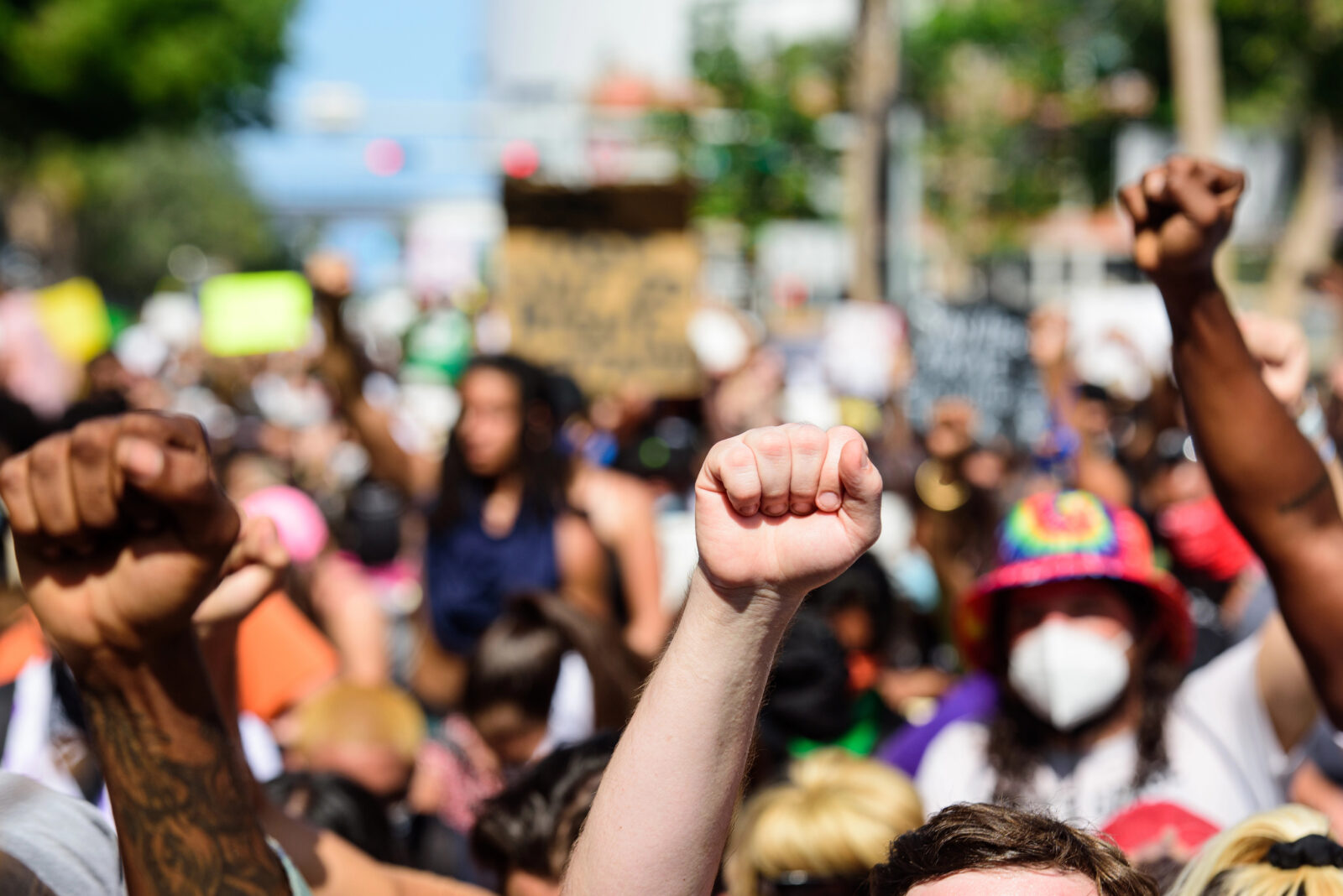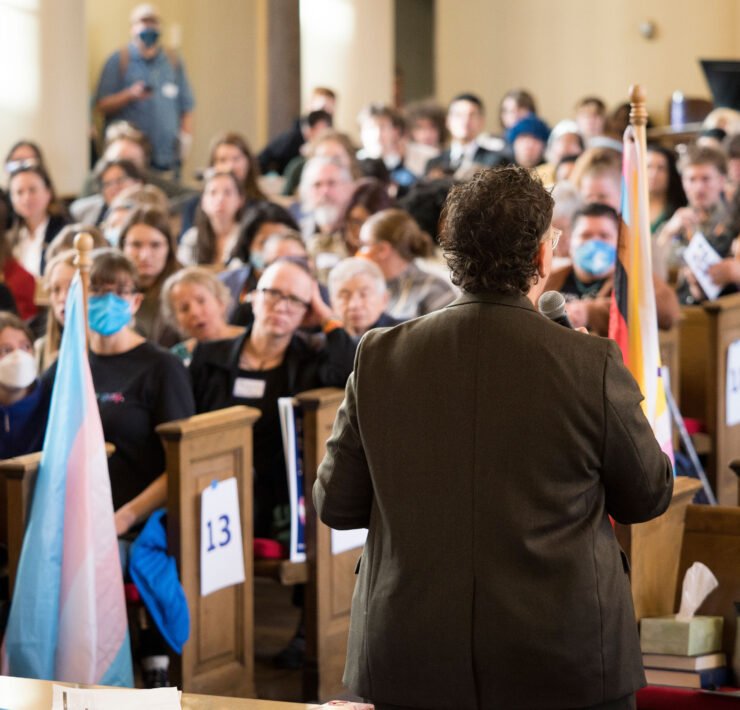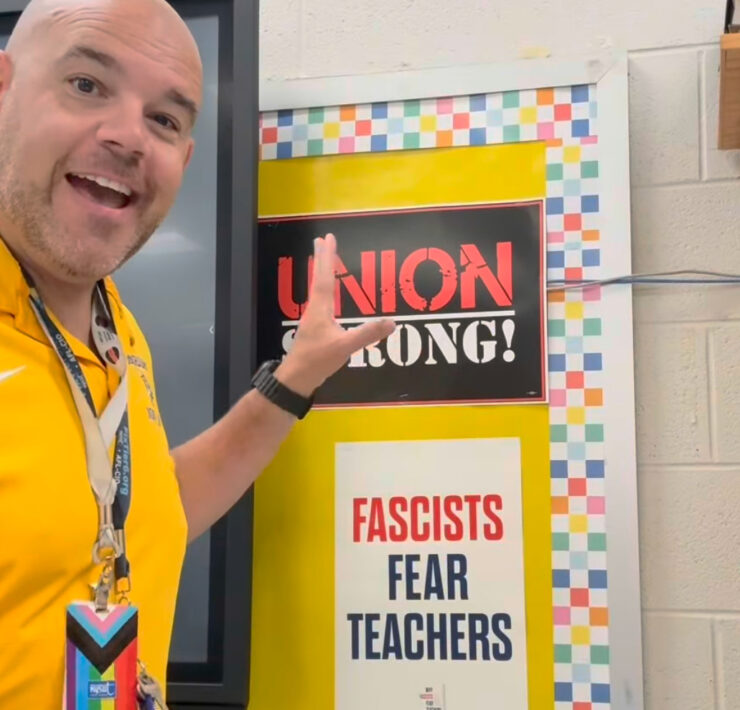Mental Politics: Balancing Mental Health and Resistance

Right now in the United States, an endless supply of executive orders and edicts from the White House target and terrorize our most vulnerable populations. New crimes, corruptions, and violations of civil liberties await anytime you open the news or social media. It’s such a constant barrage of horrors, it is harrowing to one’s mental health to watch in real time and yet difficult to ignore.
While economic strife will affect all Americans in the near future, there are few populations feeling the brunt of hate like the LGBTQ+, BIPOC, and immigrant communities. Mass deportations, firings, and attempts to erase their involvement from U.S. history have already taken a heavy toll. It is unsurprising, then, that depression, anxiety, and grief flood our communities like hurricanes.
“Within the first week of this administration, a veteran hung themselves in the Syracuse VA parking garage draped in the transgender flag,” says Ash Wallis, program operations manager for Minority Veterans of America (MVA). “We knew that this tragic event was indicative of the hopelessness many of us felt, as we could see what was coming.”
Minority Veterans of America is a nonprofit dedicated to advocacy for all veterans, but particularly LGBTQ+ and BIPOC service members. Wallis, along with MVA Executive Director Lindsey Church and their team, have been vocal in their opposition to the current administration and their harmful actions. On February 26, Church addressed a Joint Hearing of the Senate and House Veterans Affairs Committees to condemn these actions and speak up for the people.
“The erasure of history, of representation, of equity, are draining and depressing for our community,” Wallis says. “This is by design. We recognize that they want us to be so demoralized we’ll give in and become quiet, but those in power haven’t had to be fueled by spite or had the backing of a community as enduring as ours. We hope all marginalized people are finding their community and know there are folks fighting for them to have the ability to live as themselves with dignity.”
Community continues to be the answer to hatred, to opposing these ignorant and bigoted authoritarians. Organizations like MVA, Rocky Mountain Equality (RMEQ), One Colorado, Indivisible, and so many others continue to offer local support and resources, as strained as they are. It will take collective strength to push back, to continue struggling for a more compassionate and equitable society. That will take smaller actions to build and keep momentum, an exhausting prospect three months into the current administration.
Mardi Moore, CEO of RMEQ, calls the edicts and executive orders “cruel and unnecessary pain,” recalling that the RMEQ offices were fraught and distressed as the news rolled in. Though the federal government threatens health care systems and withholds funding for those who won’t comply with their agenda, states like Colorado continue to put protections in place that protect marriage equality, gender-affirming care and other LGBTQ+ issues.
While politicians and lawyers take the fight directly to the government through the courts, actions at home look different. Rallies and protests are great to build solidarity, but aren’t always an option for community members. Moore’s focus as a leader is finding ways to lessen the pain, lessen the harm, and provide space for the community to grow safely, she says.
“People are angry, and some aren’t angry; they’re just depressed. Some are anxious. Some are anxious and depressed, and it just depends on which side of the bed we wake up on that day,” Moore says. “There are moments and pockets of joy that we all work to find throughout the day or are lucky enough to be given. Is that the solution? No, but it’s getting us through until we figure out what that long-term solution is.”
To help, RMEQ hosts groups in their community center, along with regular video calls addressing advocacy efforts, and social gatherings. Their mental health program, The Point, helps connect LGBTQ+ folk with affirming therapists, providing case management and wraparound services. Other organizations offer similar services and programs, from support groups to advocacy in the halls of government at every level.
In order to function though, without succumbing to fear or putting on blinders and hoping it will all go away, it takes care and balance. Looking for those moments of joy in the small things can help levy the tides of despair, because it’s difficult to resist fascism when you’re struggling to get out of bed.
For Moore, it’s not only her team at RMEQ, but making time for herself and friends. She adopted a puppy, and regular playdates give her an opportunity to socialize. For self-care, she says bubble baths are the key, as many as it takes to get through the day. Wallis echoes the sentiment, urging people to check on their friends and make an effort toward in person connections as part of regular detox from social media.
“Get in touch with nature and your community; create a ritual for this. Every week on Sundays, I set aside the day with the intention to bake bread and write poetry. I call them Bread Days,” Wallis says. “But ‘bread’ can be spending time with a friend, making a homemade meal, going to see live music—whatever helps you tap into what makes you human and grounds you.”
Dedicating time on a regular basis, a few hours or more, can help alleviate the burdens. Curating news sources and taking regular breaks from taking in the devastation are important. For those looking to get involved in advocacy and activism, Wallis urges them to take a firm check of their capacity and set boundaries. Resistance doesn’t only happen on the front lines but behind the scenes.
“People can write, make art, have conversations in their communities, and contact their representatives,” Wallis says. “Start a book club. Continue to live authentically, gather, and create. We can’t lose the kind of life we want to lead in America; it’s why we’re fighting, so don’t forget to live.”










